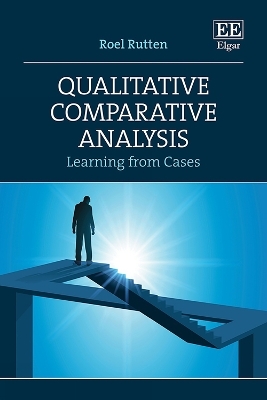
Qualitative Comparative Analysis
Learning from Cases
Seiten
2024
Edward Elgar Publishing Ltd (Verlag)
9781839104510 (ISBN)
Edward Elgar Publishing Ltd (Verlag)
9781839104510 (ISBN)
Emphasising the Q in qualitative comparative analysis (QCA), Roel Rutten presents QCA as a thoroughly qualitative method to help researchers learn from cases. He highlights that while Boolean expressions describing cross-case patterns are QCA’s most conspicuous element, they do not amount to causal explanations.
Throughout the book, Rutten demonstrates how QCA’s interpretive logic pervades every step of a QCA study. He uses critical realism as a philosophical foundation to explain how QCA researchers develop their partial and perspectival knowledge of cases into Boolean expressions. Proposing multi-level sets as a way to acknowledge the diversity of social reality, Rutten criticises the use of fuzzy sets in QCA as a poor match to QCA’s threshold logic.
Comprehensive and innovative, this book is a vital read for social science methods experts and users. It is also an important book for QCA experts and students looking for a deeper understanding of QCA.
Throughout the book, Rutten demonstrates how QCA’s interpretive logic pervades every step of a QCA study. He uses critical realism as a philosophical foundation to explain how QCA researchers develop their partial and perspectival knowledge of cases into Boolean expressions. Proposing multi-level sets as a way to acknowledge the diversity of social reality, Rutten criticises the use of fuzzy sets in QCA as a poor match to QCA’s threshold logic.
Comprehensive and innovative, this book is a vital read for social science methods experts and users. It is also an important book for QCA experts and students looking for a deeper understanding of QCA.
Roel Rutten, Associate Professor, Department of Organization Studies, Tilburg University and Senior Research Consultant, European Regional Affairs Consultants (ERAC), the Netherlands
Contents
Preface
1 QCA: learning from cases
2 The Ragin revolution
3 A theory of causality for QCA
4 Cases, case populations and generalization
5 Boolean algebra
6 The case-based causal logic
7 Set analysis
8 Calibration and aggregation
9 Reservations against fuzzy sets in QCA
10 The truth table analysis
11 Calibration and confounding conditions in a large-N example
12 Getting QCA right: a small-N example
13 Capturing the logic and practice of QCA
References
Appendix: Resources
| Erscheinungsdatum | 15.11.2024 |
|---|---|
| Verlagsort | Cheltenham |
| Sprache | englisch |
| Maße | 156 x 234 mm |
| Themenwelt | Naturwissenschaften ► Geowissenschaften ► Geografie / Kartografie |
| Sozialwissenschaften ► Soziologie ► Spezielle Soziologien | |
| ISBN-13 | 9781839104510 / 9781839104510 |
| Zustand | Neuware |
| Informationen gemäß Produktsicherheitsverordnung (GPSR) | |
| Haben Sie eine Frage zum Produkt? |
Mehr entdecken
aus dem Bereich
aus dem Bereich
Buch | Hardcover (2024)
Schweizerbart'sche, E. (Verlag)
CHF 33,55
Zahlen, Fakten und Geschichten : in über 1000 Infografiken, Karten …
Buch | Hardcover (2025)
Marmota Maps (Verlag)
CHF 55,90
Sammlung vermessungstechnischer Aufgaben mit ausführlichen Lösungen
Buch | Softcover (2025)
Wichmann, H (Verlag)
CHF 37,80


